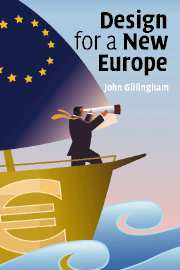2 - Economics
Published online by Cambridge University Press: 18 August 2009
Summary
Europe is shrinking in an expanding world, running in place while others sprint, and glancing sideways instead of looking forward. If things do not soon change, it will not only count for less in the future but miss out on much of the fun. Don't be morose: remarkable events are unfolding in our time. We are witness to the opening and self-realization of cultures, the birth of modern nationhood in various parts of the globe, and the spread of democracy – even on Europe's doorstep. An adaptive and economically robust European Union (EU) of vigorous nation-states can strengthen this global trend and benefit from it. The EU must first be overhauled, however. Having once been a spur to growth, the EU has become a brake on it, which must be released for Europe to prosper.
The world is enjoying the longest sustained growth spurt in history. In 2004 the international economy grew at the fastest rate in fifty years, more than 5 percent. Every region except Africa, parts of the Middle East, and Europe registered robust gains. Today less than a sixth of the world's population lives in poverty, whose eradication now seems within reach. Growth has been breathtaking in China, much of East Asia, and India, impressive in Latin America, and strong in the United States. Europe lagged behind last year at 2.2 percent, less than half the US rate – an improvement, at least, over the 1.4 percent over the past decade and 1 percent in the 1980s.
- Type
- Chapter
- Information
- Design for a New Europe , pp. 55 - 110Publisher: Cambridge University PressPrint publication year: 2006

